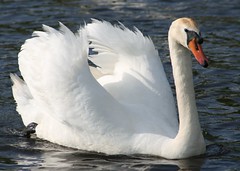Adeodato Sim : Five films (#2)
It’s time for recommending five films
again. I’ve also decided that I
may reserve the last of the five for films I watched prior to starting
these series.
So here we go:
- Au revoir les enfants (Goodbye, Children): just watch it, really. (France, World War II, children in a school run by priests, but there’s a part I’m not telling you.)
- El bosque animado: a superb film that every Spanish person should watch. Magic comedy & drama set up in rural Galicia. Amazing Tito Valverde.
- eXistenZ: yet another one by David Cronenberg, involving futuristic video games this time. Quite a good see, but predictable ending?
- Billy Elliot: the kid who wants to dance ballet. Predictive and linear, but I just loved it, as I expected — maybe you will too. The scene where Billy says goodbye to Michael just completely and utterly broke my heart, probably because I identified so much with Michael.
- Now, Voyager: Bette Davis plays an ugly duckling, that obviously transforms into an awesome swan. Superb. Oh, and Bette Davis.

 On my way home from New Zealand, I spent a (Friday) night in
Melbourne. Peter, Donna, Andrew, and Mark, all of whom I knew from
On my way home from New Zealand, I spent a (Friday) night in
Melbourne. Peter, Donna, Andrew, and Mark, all of whom I knew from
